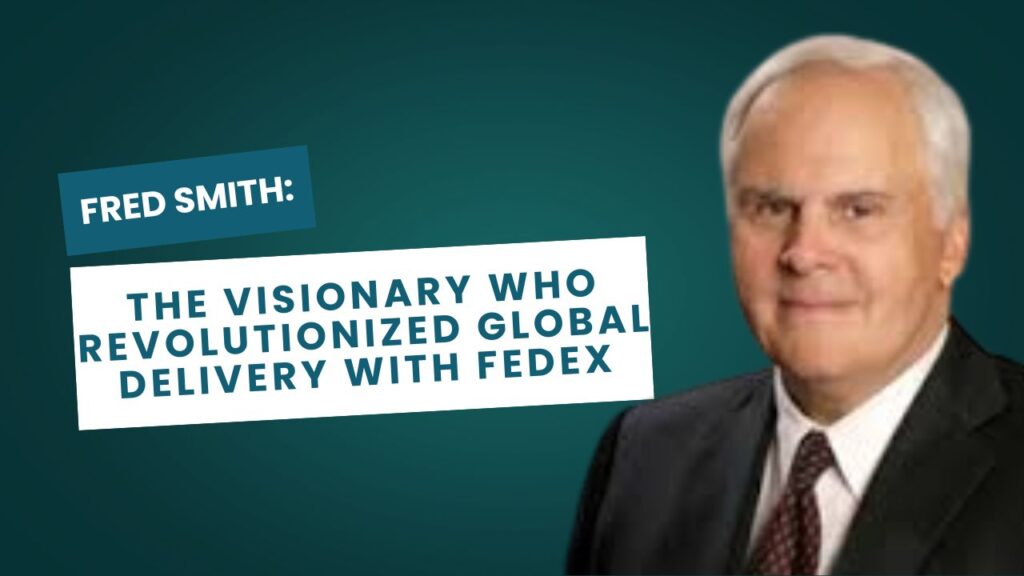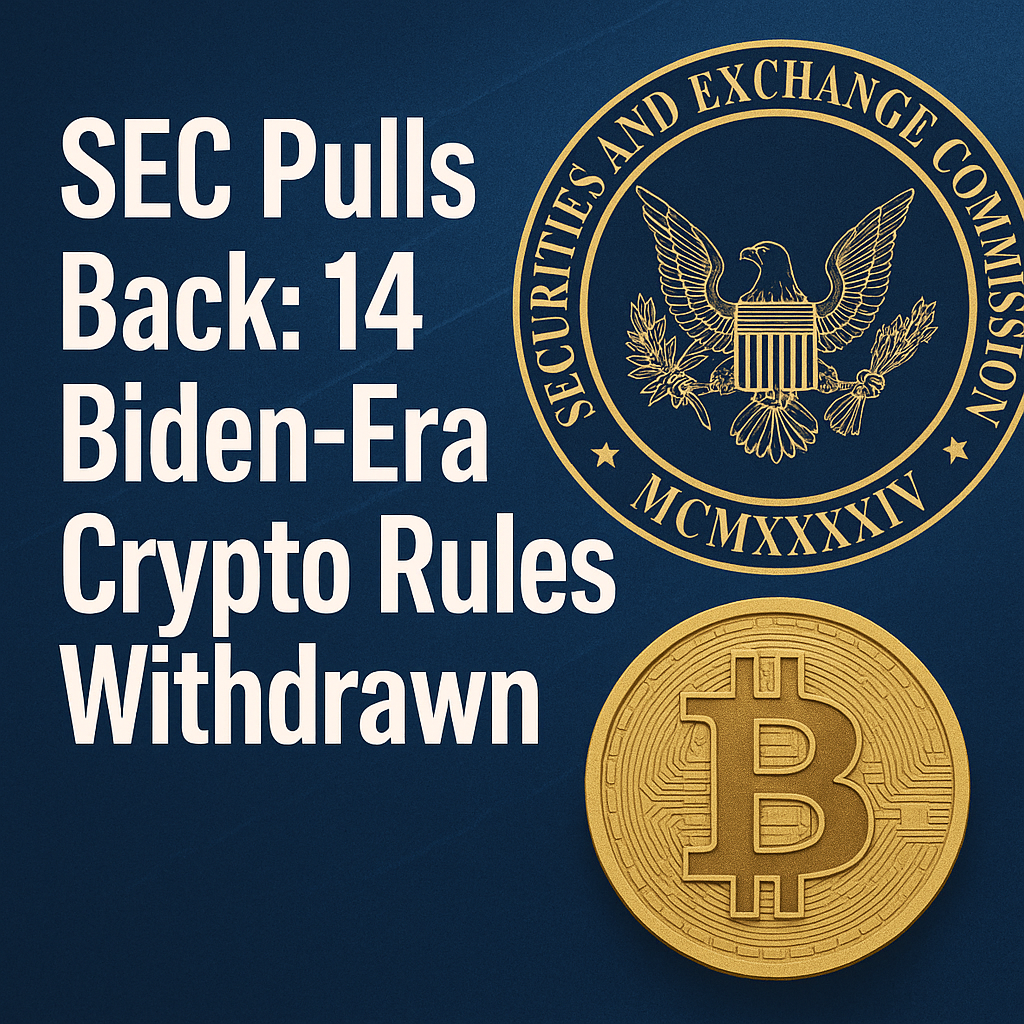The Man Who Delivered the Future
When we talk about American innovators who changed the way the world works, names like Thomas Edison, Steve Jobs, or Elon Musk often come up. But there’s another name that deserves equal recognition — Frederick W. Smith, founder of FedEx (Federal Express). Smith didn’t invent airplanes or trucks, but he did something just as revolutionary: he created a worldwide overnight delivery system that redefined global commerce and logistics.
In this in-depth article, we’ll explore Fred Smith’s journey, the challenges he overcame, the incredible success of FedEx, and how his innovation still impacts the world today. If you’ve ever received a package overnight, you have Fred Smith to thank.

Early Life: A Boy with a Vision
Born in Marks, Mississippi, on August 11, 1944, Fred Smith grew up in a small Southern town but had a mind full of big ideas. Smith’s father was a successful businessman, and although Fred lost him at a young age, that didn’t stop him from thinking ambitiously.
Smith suffered from a childhood illness that weakened his bones, forcing him to rely on crutches for a few years. Instead of slowing him down, this time helped him develop resilience and determination — two qualities that would later define his entrepreneurial path.
After high school, Smith went on to study at Yale University, where he majored in economics. It was during his time at Yale that he wrote a paper for an economics class proposing an integrated air-to-ground system for overnight deliveries. The idea received a lukewarm grade, but it would later become the blueprint for FedEx.
16 Billion Passwords Exposed in Colossal Data Breachin Colossal Data Breach
Mastering Retirement Planning in 2025: Your Ultimate Guide to a Stress-Free Financial Future
The Birth of FedEx: Betting on a Bold Idea
After a stint as a Marine in the Vietnam War, Smith returned to the U.S. with strong leadership skills and a belief in execution under pressure. In 1971, using $4 million of his inheritance and raising another $91 million in venture capital, Smith launched Federal Express Corporation — now known simply as FedEx.
At the time, his idea sounded impossible. The logistics industry was fragmented, unreliable, and slow. But Smith had a different vision:
“What if we could absolutely guarantee overnight delivery of a package — anywhere?”
In April 1973, FedEx officially began operations with 14 small aircraft servicing 25 U.S. cities. The first few years were anything but smooth. The company struggled financially and often flirted with bankruptcy.
In a now-famous story, when FedEx was running out of money, Smith took the last $5,000 in the company account to Las Vegas. He played blackjack and won $27,000, which allowed the company to make payroll for another week.
Talk about a high-stakes gamble that paid off.
The FedEx Model: Innovation in Motion
Fred Smith’s genius wasn’t in inventing something entirely new — it was in combining existing technologies (planes, trucks, sorting systems) into a cohesive, reliable, and scalable system.
Here’s what made FedEx revolutionary:
- The Hub-and-Spoke Model: All packages were flown to a central location in Memphis, Tennessee, sorted overnight, and dispatched to their final destinations.
- Own Fleet of Aircraft: Unlike competitors who relied on commercial flights, FedEx had its own planes, ensuring timely schedules.
- Overnight Delivery Guarantee: A game-changer — customers were refunded if their packages didn’t arrive on time.
- Package Tracking System: One of the first companies to develop real-time tracking, offering customers peace of mind and accountability.
Smith understood early that logistics + technology = power. This formula made FedEx the backbone of global commerce, especially with the rise of e-commerce in the 1990s and 2000s.
Challenges and Triumphs: Navigating the Storms
Fred Smith’s journey wasn’t a straight line to success. He faced:
- Skeptics in the Industry: Most people didn’t believe customers would pay extra for overnight delivery.
- Financial Hurdles: Operating a private air fleet was expensive, and FedEx operated at a loss for years.
- Fuel Crises and Recessions: The 1970s oil crisis and later economic downturns threatened FedEx’s operations.
- Legal Battles: Smith had to fight regulatory battles to protect the right to fly his own fleet and maintain competitive advantages.
But Smith’s Marine Corps mindset — “Adapt and overcome” — helped him build a culture of resilience. By the 1980s, FedEx had become profitable, and by the 1990s, it had gone global, expanding to Europe, Asia, and beyond.
Fred Smith’s Leadership Style: People First
Smith was never just about profits; he was also deeply committed to building a strong company culture. One of his famous mantras is:
“People — Service — Profit.”
The idea is simple but powerful: take care of your people, and they’ll take care of your customers, leading to profits.
Some key aspects of his leadership:
- Promoted from Within: Many FedEx leaders started on the ground floor.
- Invested in Employee Training: Believed in equipping employees with skills and a clear career path.
- Emphasized Integrity: Smith was adamant about maintaining trust with customers and employees alike.
- Hands-On Approach: He regularly visited FedEx hubs and facilities, maintaining a strong connection with operations.
In 2022, after more than five decades of service, Fred Smith stepped down as CEO, passing the torch but remaining as Executive Chairman.
Legacy: How Fred Smith Changed the World
Fred Smith didn’t just build a logistics company — he transformed the way the modern world does business. Here’s a snapshot of his legacy:
- Created the $100 Billion FedEx Empire: A global enterprise that handles millions of packages daily across 220+ countries.
- Pioneer of the E-commerce Revolution: Without overnight shipping, giants like Amazon or Shopify wouldn’t operate as efficiently.
- Global Supply Chain Model: Inspired similar logistics systems in industries from healthcare to retail.
- Sustainability Leader: FedEx has invested in electric delivery vehicles, carbon offsets, and sustainable fuel tech.
- Mentor and Role Model: Smith has influenced countless entrepreneurs with his tenacity and bold vision.
Interesting Facts About Fred Smith
- Yale Classmate of George W. Bush: They were even in the same fraternity.
- Vietnam Veteran: Flew over 200 combat missions and was awarded the Silver Star, Bronze Star, and two Purple Hearts.
- Was Nearly Bankrupt Multiple Times: But always found a way to keep FedEx afloat.
- Played Blackjack to Save FedEx: That Vegas trip is now a legendary tale in business circles.
- Advocate for Free Markets: Strong proponent of globalization and deregulation to boost business.
Why Fred Smith Still Matters in 2025
In today’s post-pandemic world, the demand for reliable logistics has skyrocketed. Remote work, digital commerce, and global supply chains rely heavily on fast and accurate delivery.
Even in the age of drones and AI, Smith’s foundational principles — speed, reliability, innovation — are more relevant than ever.
FedEx continues to lead in:
- AI-based routing
- Carbon-neutral logistics
- Autonomous delivery systems
- Same-day delivery services
All of this started with one man’s belief that packages could — and should — reach their destination overnight.
Conclusion: Delivering a Legacy of Innovation
Fred Smith isn’t just a businessman. He’s a visionary, a risk-taker, a patriot, and one of the most impactful entrepreneurs in American history. In building FedEx, he did more than deliver packages — he delivered possibilities.
In a world that demands instant gratification, Smith’s innovation gave rise to a new standard of excellence — one where distance, time zones, and international borders no longer stand in the way of progress.
From a college term paper to a trillion-dollar global impact, Fred Smith proved that ideas — when fueled by courage and commitment — can change the world.
FAQs About Fred Smith and FedEx
Q1: Who is Fred Smith?
Fred Smith is the founder of FedEx and a pioneer in the logistics and delivery industry. He revolutionized overnight shipping and helped shape global commerce.
Q2: When was FedEx founded?
FedEx began operations in April 1973 and was officially incorporated in 1971.
Q3: Is the story about Fred Smith gambling in Vegas true?
Yes! Facing bankruptcy, Smith used the last $5,000 in FedEx’s account, gambled in Las Vegas, won $27,000, and used it to pay the company’s fuel bill.
Q4: What is Fred Smith’s leadership style?
He emphasizes “People-Service-Profit”, valuing employees and customers equally, with a long-term vision of sustainable growth.
Q5: How does FedEx impact the modern world?
FedEx has become essential for e-commerce, global trade, supply chains, and real-time logistics, handling millions of shipments daily.
Q6: What’s Fred Smith doing now?
As of 2025, Fred Smith is Executive Chairman of FedEx, stepping away from day-to-day operations but still involved in strategic decisions.

